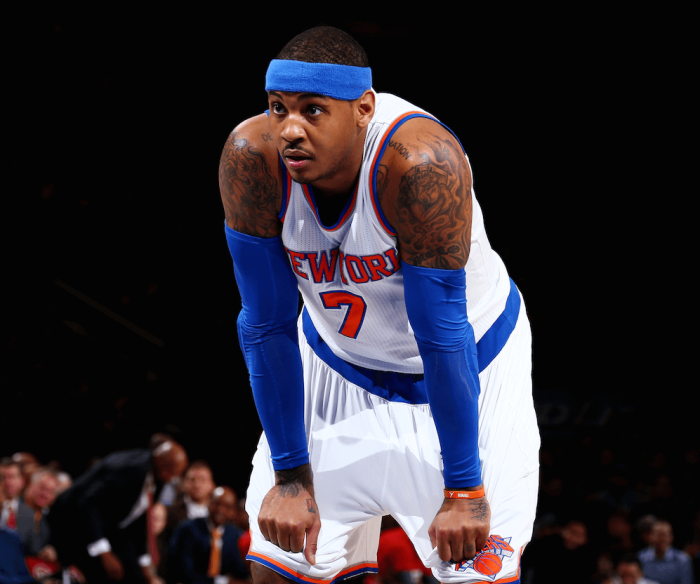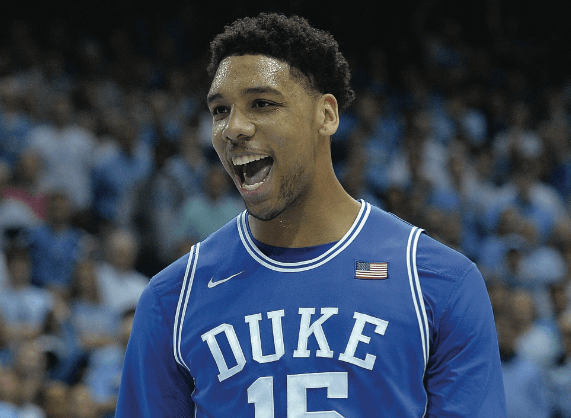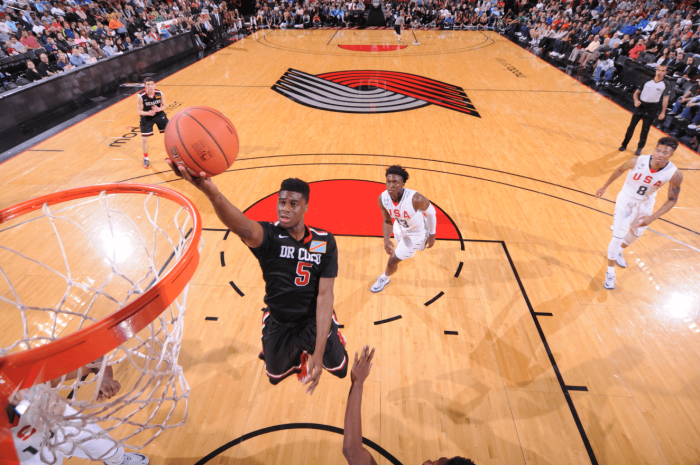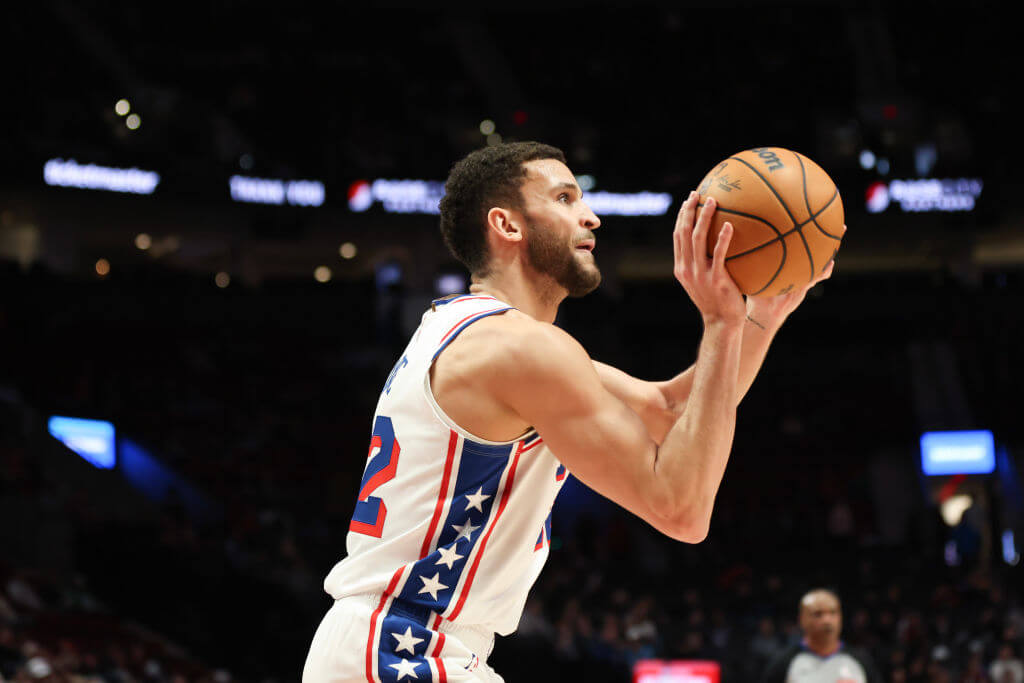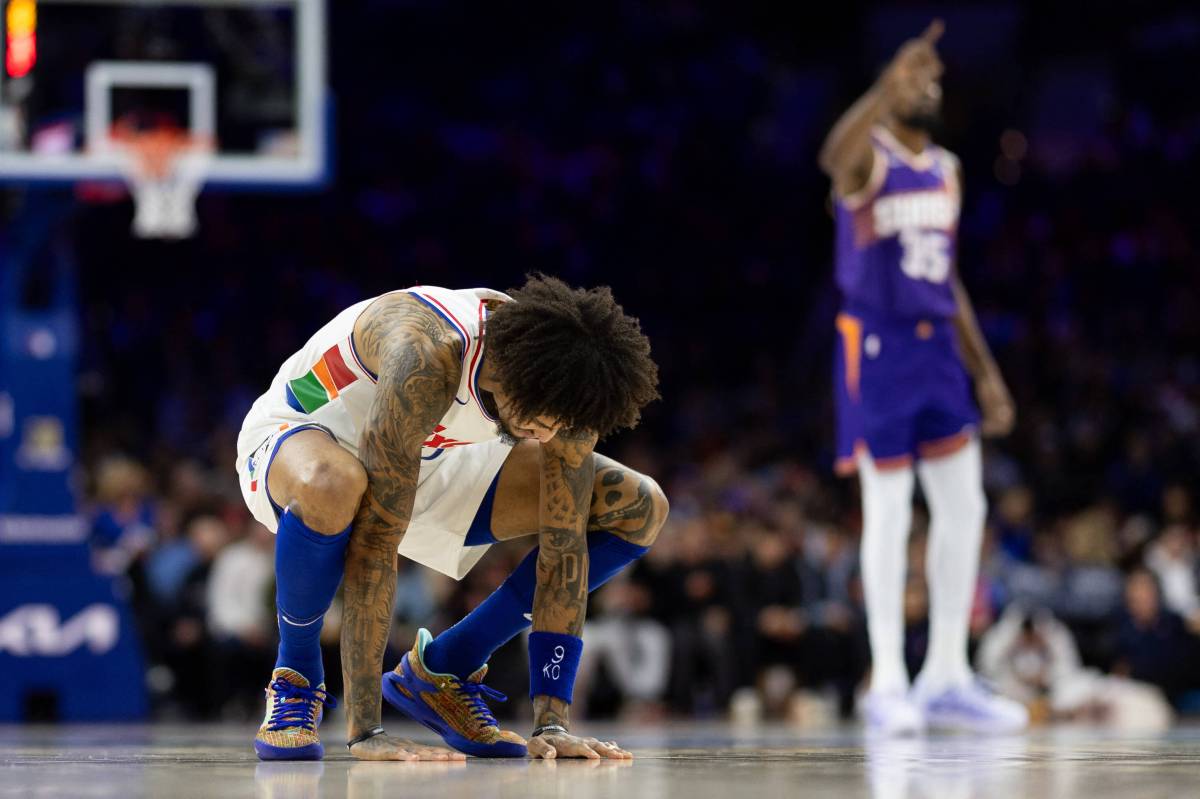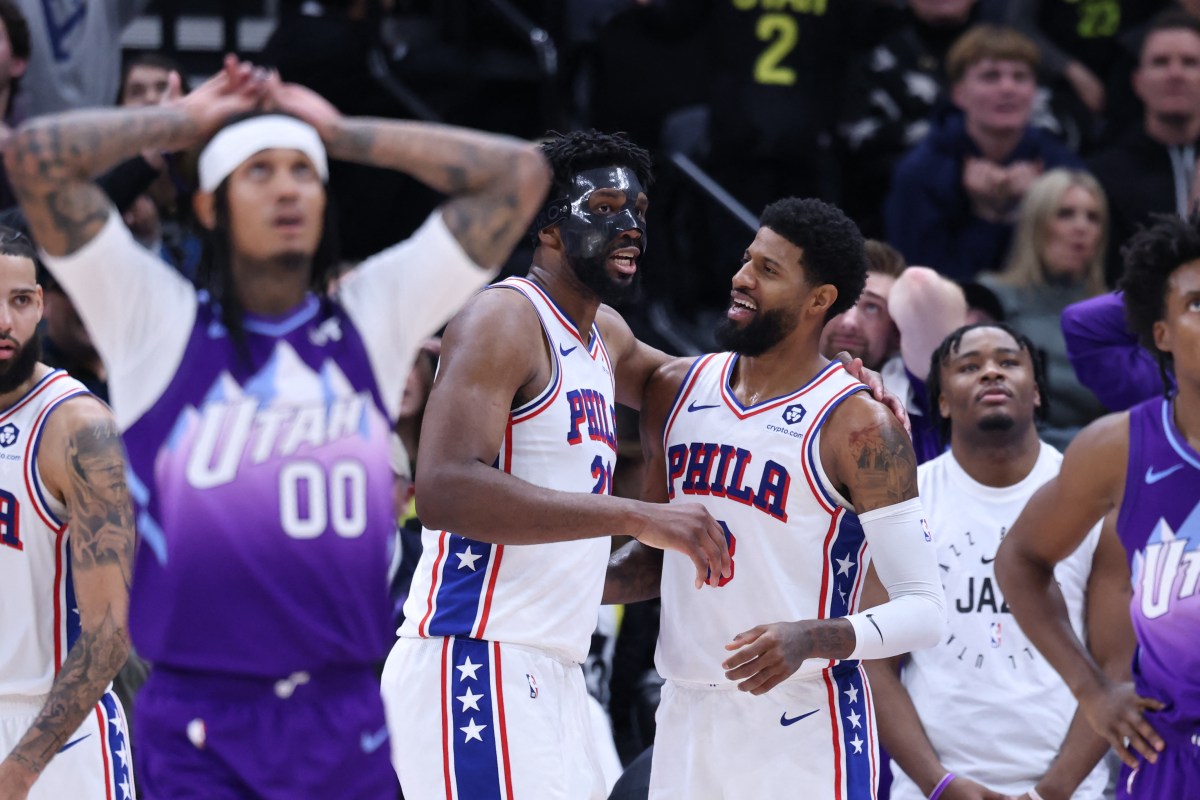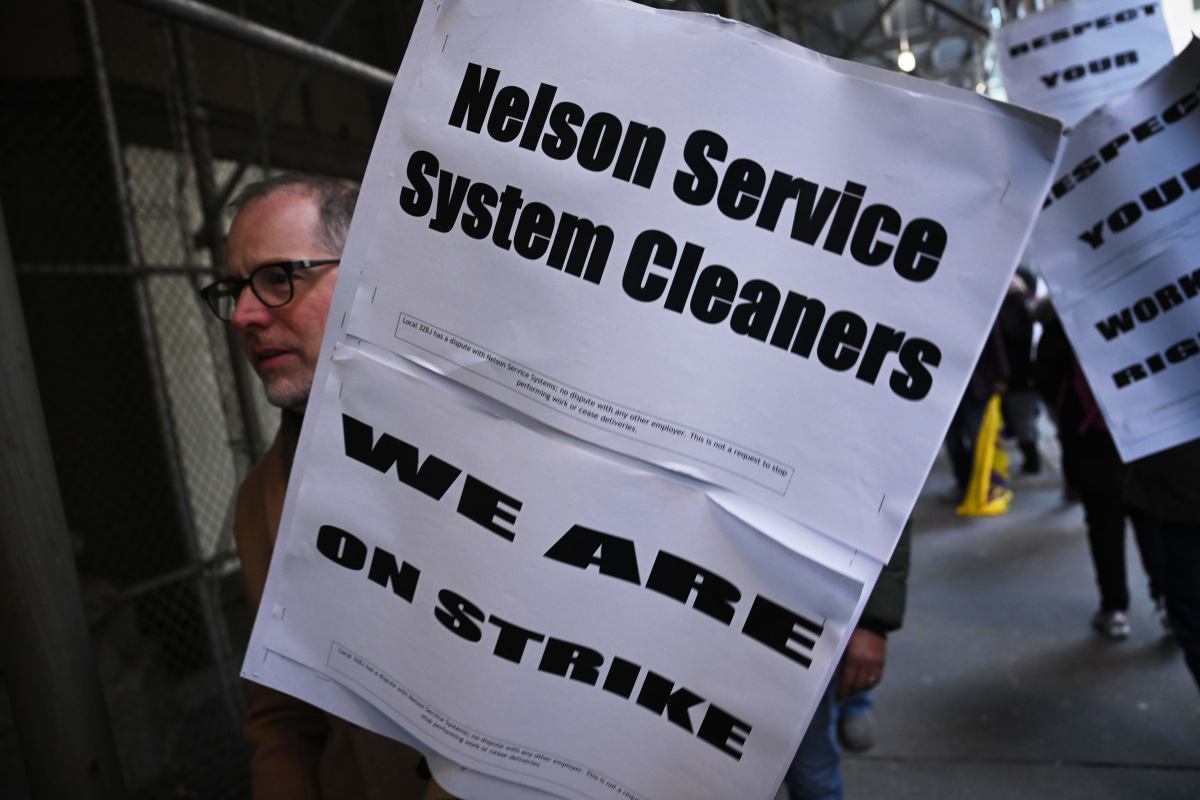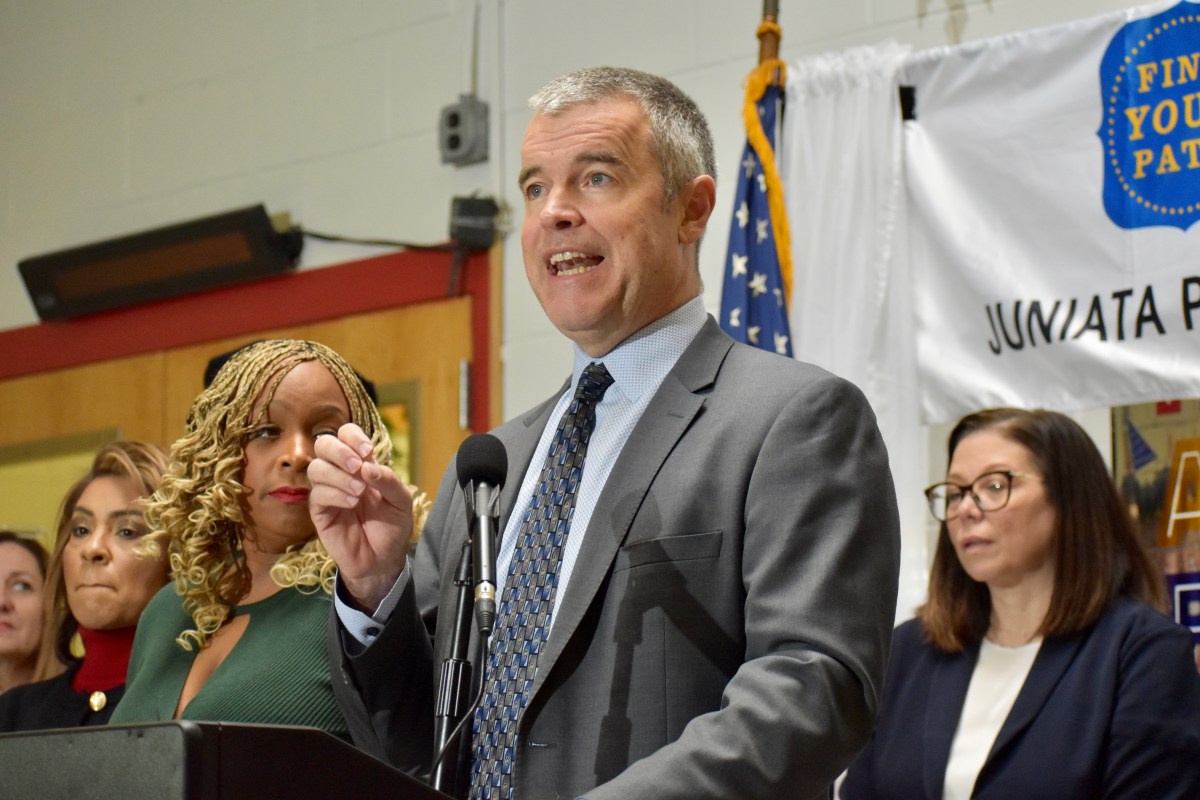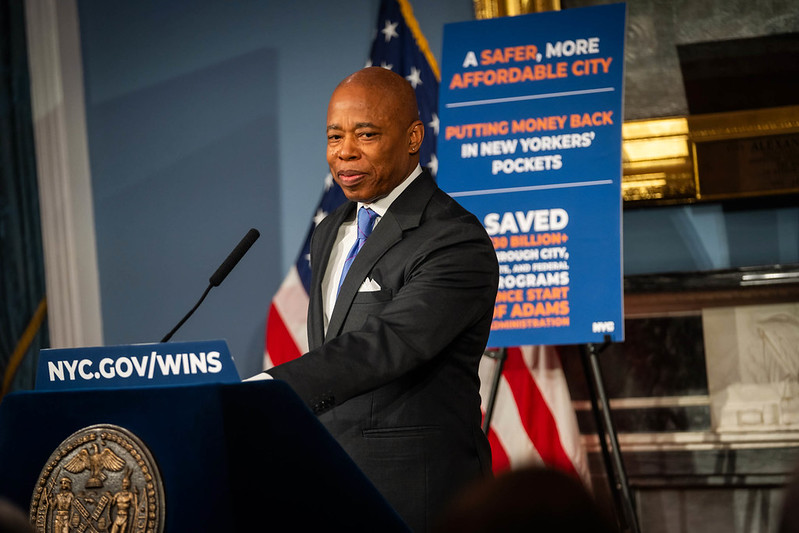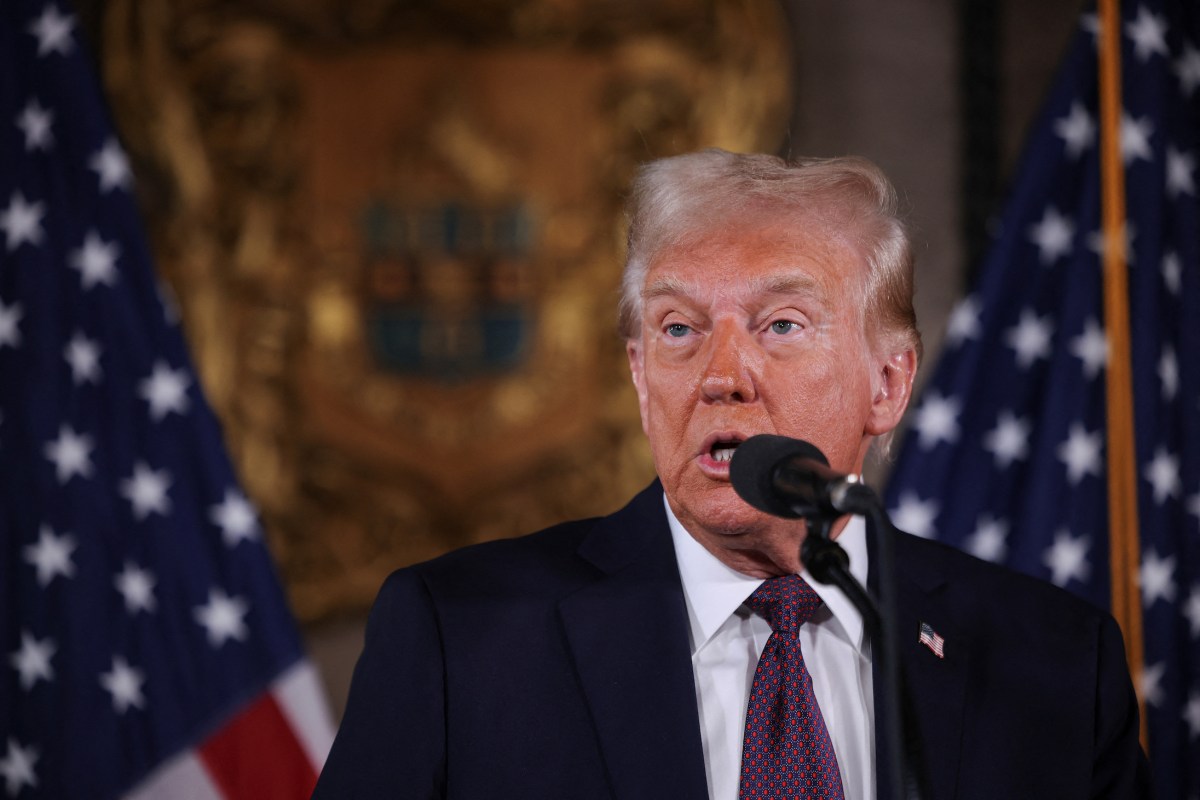The latter part of this week, and throughout this coming weekend, New York City will be crawling with former and current NBA stars. Amongst those giants will be one of the more underrated big men of all-time: four-time NBA champion, Horace Grant. Grant, who won three titles with the Chicago Bulls (1991-93) and one with the Los Angeles Lakers (2001), was a playoff participant in 13 of his 17 NBA seasons, and was an All-Star forward (1994). He was gracious enough to regale Metro with tales of his 1990s battles against the Knicks, what All-Star weekend means to New York and the current state of the Knicks, as his former coach Phil Jackson tries to restore the proud franchise to glory. Metro: What was it like battling the Knicks all those years, during an era when everyone was playing physical basketball? Those Knicks teams took it to another level.
Horace Grant: It was great to get the series over with, because it was so grueling. When we met them in whatever round, everyone knew it was going to be some good basketball played. We knew going in it was going to be tough and we had to get our minds right and body right to go the distance… Those are the series’ that made basketball back in the day, because everyone was glued in to see if they would knock off the Bulls. Metro: You were a pretty good scorer in your own right coming out of Clemson (21 points per game, senior year), so what was it like to have to adapt to playing with the likes of Michael Jordan and Scottie Pippen? HG: I was a scorer in college and had a nice jumper, but when you play with guys like them, you have to adjust your game to stay on the floor, and that’s what I did. I had to take that scoring mentality out of my head. Metro: Was it hard to rein in your game so you could fit in better, knowing those two were going to see the bulk of the shots?
HG: I was blessed to be on some pretty good teams and playing with some outstanding players like Mike [Jordan] and Scottie [Pippen], and Shaq [O’Neal] and Kobe [Bryant], and also Penny [Hardaway] and young Shaq… As long as they appreciated what I brought to the game it was cool [because] I knew I had to do my job. Whether that was to defend, rebound, block shots, and occasionally hit that 15-17 foot jumper, they always knew they could count on me. Metro: You played with a lot of talented guys and for a great majority of your career, you played in the Triangle offense. Why do you think these Knicks are having such a difficult time in learning Phil’s system? HG: In the beginning it is hard, but it’s been [more than a] half-season and personally I feel they should’ve gotten it by now. Once you get it you’ll understand [but] you have to have willing participants who want to do it. And when you’re not winning, you sometimes have that mindset that you want to do your own thing and you can’t do that. To me, if guys like Mike [Jordan] and Kobe [Bryant], two of the best scorers ever can buy in, anybody can buy in. I mean, it helped win 11 championships. But you need willing participants and the right people to do it. Metro: Phil likes his veterans, so he’d always bring in a few of “his guys” to help teach the Triangle at every stop he made. His current staff is littered with guys from his past who know the offense, like [head coach] Derek Fisher, and [assistant coaches] Kurt Rambis and Jim Cleamons. That should help the transition, right? HG: Phil always brought in veterans like Ron Harper to teach the Triangle [when Jackson first coached the Lakers], but Shaq and Kobe were so willing to learn under Phil [because he] won six championships and knew what he was talking about. These guys need to respect Derek Fisher, because he’s always been a winner wherever he’s gone. Of course, if they were winning there’d be a whole different scenario. But they have a young coach [and] his demeanor isn’t like Phil’s and his voice isn’t Phil’s, but he’s a winner – the guys should listen. Metro: Has Phil ever — or will he ever — reach out to you, too?
HG: We discussed it a little about finding a position for me, but hopefully in the near future we’ll discuss it again. I’m such a big fan of the NBA and I watch a lot of games, and I always think I can help one of the bigs in terms of being in the right position on offense and how to defend.
Metro: You mentioned helping bigs. Your game is reminiscent to Amar’e Stoudemire’s, in that while he still flashes some athleticism, he can be a potent scorer at that elbow when on the floor. Could you ever see yourself helping him expand his game even more in the Triangle? HG: Sure. He can score, but there’s more to that. Even now with his talent, once he learns, that young man should be dominating, especially on offensive rebounding. You can get so many in the right position on the weakside, because we have to keep the defense honest on the weakside, so there’s room to grab rebounds and get easy baskets. Metro: You mentioned that guys have to “buy in” to what the Triangle offers. Do you think there’s any correlation to the recent relative success by the Knicks [5-5 in their last 10 games] since they traded J.R. Smith and Iman Shumpert to the Cleveland Cavaliers and brought in hungry vets like Lou Amundson and D-League call-up Langston Galloway? HG: With the guys they had, guys weren’t winning anyway, so why not bring in guys that Phil knows wants to develop in that Triangle and develop that closeness on the team? Phil will be successful, so be patient. Once they learn this offense it will be poetry in motion. Metro: Can you expand on the projects you’re involved in pertaining to the All-Star Weekend in New York, such as the fan hubs in Manhattan and Brooklyn called “NBA Houses,” where there will be clinics and opportunities for fans to interact with both current and past NBA players? HG: This has been a great project. Kids get to meet guys like [retired stars like] Daryl Dawkins, Dominique Wilkins, and George Gervin. They get to participate in drills, and for those who never had the chance to see those guys play, and see those games, get to interact. It’s a great program to keep the fans involved with not only today’s players, but the retired. Metro: What are your thoughts on social media and how it shapes and promotes today’s players, as well as allowing the younger generation to stay in touch with yesterday’s stars? HG: Social media is absolutely fantastic for the NBA. And being able to interact with older players like never before is great. To get the chance to meet a Gervin through [social media] and then go Google and see what he and other retired guys were about is great … And of course to get to search and learn about the Bulls’ dynasty. Metro: Finally, you mentioned wanting to give back to today’s players and help them adjust to the Triangle, or just basketball in general. So, how important is it to you to stay involved and help the game of basketball any chance you get? HG: I’m a goodwill ambassador for the NBA, particularly the NBA Cares program, traveling around the world on behalf of the league. We’ve gone from South America, to China, and to Africa – in all we’ve been to over 25 different countries. I’ve worked with guys like [former NBA great] Dikembe Mutombo as ambassadors. The NBA has done such a great job of globalizing. Every country we’ve gone to, there’s been kids playing and there’s an outcry for them to work hard so maybe one day they can make it to the NBA.
Q & A session with former Bulls, Magic, Lakers star Horace Grant
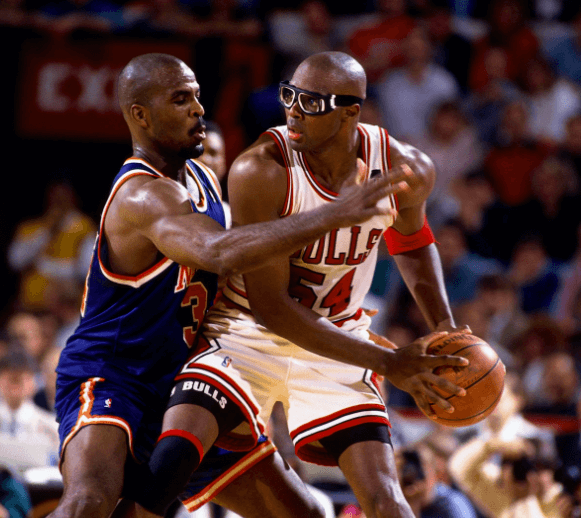
Getty Images

